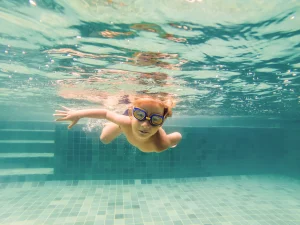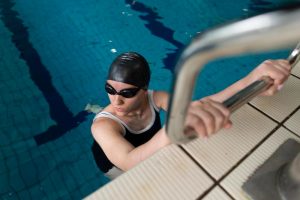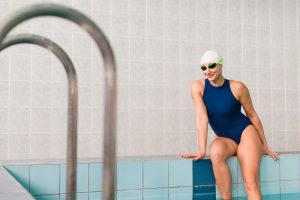The combination of swimming and neurodiversity can bring remarkable benefits to the brain, social, and psychomotor development of neurodivergent individuals.
It’s no secret that regular physical activity is good for our health — but recent studies have highlighted just how beneficial swimming can be for people with autism, ADHD, and other neurological conditions.
This happens because swimming combines aerobic exercise, light resistance, controlled sensory stimulation, and opportunities for social interaction — all within a structured and well-prepared environment.
However, despite its many advantages, swimming also presents challenges that need to be taken into account. Below, we explore the main benefits and obstacles faced by neurodivergent individuals in aquatic practice.
The Benefits of Combining Swimming and Neurodiversity
Scientific research has shown consistent improvements, especially in cases of autism and ADHD:
- Motor and aquatic skills: regular practice improves motor coordination, body orientation in the water, and swimming technique. Play-based training helps to reduce involuntary behaviours.
- Behavioural and emotional regulation: contributes to fewer repetitive behaviours and greater emotional stability, particularly in children on the autism spectrum.
- Attention and cognition: promotes progress in inhibitory control, selective attention, and cognitive flexibility. It can also improve mood and reduce anxiety and stress.
- Social skills: autistic adolescents tend to show increased eye contact, better interaction, and greater respect for social rules.
- Water safety: continuous learning of survival skills reduces the risk of drowning, especially among autistic children.
It’s clear that the combination of swimming and neurodiversity supports not only physical health and motor development but also social interaction — since the aquatic environment is often less intimidating.
In people with ADHD, swimming programmes have demonstrated improvements in executive functions such as working memory and selective attention, as well as mental health benefits, including better sleep quality.
In children with autism, eight weeks of technical or play-based aquatic training have resulted in substantial gains in gross motor skills and a reduction in stereotyped behaviours.

These outcomes stem from both the aerobic exercise and the sensory characteristics of water — such as hydrostatic pressure, resistance, and the overall sense of body immersion.
To maximise these effects, it’s essential that lessons include clear structure and gesture-based communication, helping students’ understanding and autonomy. Qualified professionals and adapted environments are fundamental to achieving the full range of benefits.
Main Challenges to Overcome
Even with so many positive points, there are real obstacles that can limit access or reduce the effectiveness of training:
- Sensory environment of the pool: noises, echoes, artificial lights, the smell of chlorine, and the presence of many people can be overwhelming. Scheduling lessons during quieter times and familiarising students with the space in advance can help reduce these impacts.
- Instructor training: many swimming teachers lack specific preparation in autism, ADHD, or other neurodivergent needs. Ongoing training and good practice are vital for safety and progress. Private lessons and a consistent instructor support adaptation.
- Cost and availability: individual sessions or small-group classes are often more expensive, limiting access, particularly outside major cities.
- Safety and supervision: due to the higher risk of aquatic incidents, it’s essential to combine swimming instruction with strict prevention strategies.
Recommendations for Neurodivergent Swimmers
To maximise benefits and minimise risks, a few concrete measures should be considered:
- Mandatory training for instructors working with neurodivergent students;
- Maintenance of predictable routines;
- Use of visual materials to complement or replace verbal instructions;
- Reserved time slots exclusively for neurodivergent learners.
Private Lessons at Home
Swimming is undoubtedly a powerful tool to promote physical health, sensory self-regulation, motor skills, and psychosocial wellbeing.
The growing body of research on this topic is already driving policies and initiatives across several countries — including the United Kingdom.
However, these benefits can only be fully realised when both the environment and professionals are well prepared.
That’s why private lessons at home can provide comfort and consistent progress for neurodivergent children, as the familiar setting is more predictable and controlled.
Having a specialised instructor, such as those at Easy2Swim, is the best way to transform your home pool into a safe and welcoming space.

Individual sessions reduce sensory overload, allow for focused attention, and promote self-regulation, motor development, and water safety — all with flexible scheduling to suit the family routine.
Sessions can also include siblings, parents, or carers, strengthening emotional bonds.
Enjoy the benefits of combining swimming and neurodiversity — contact our professionals and book your lesson today.






